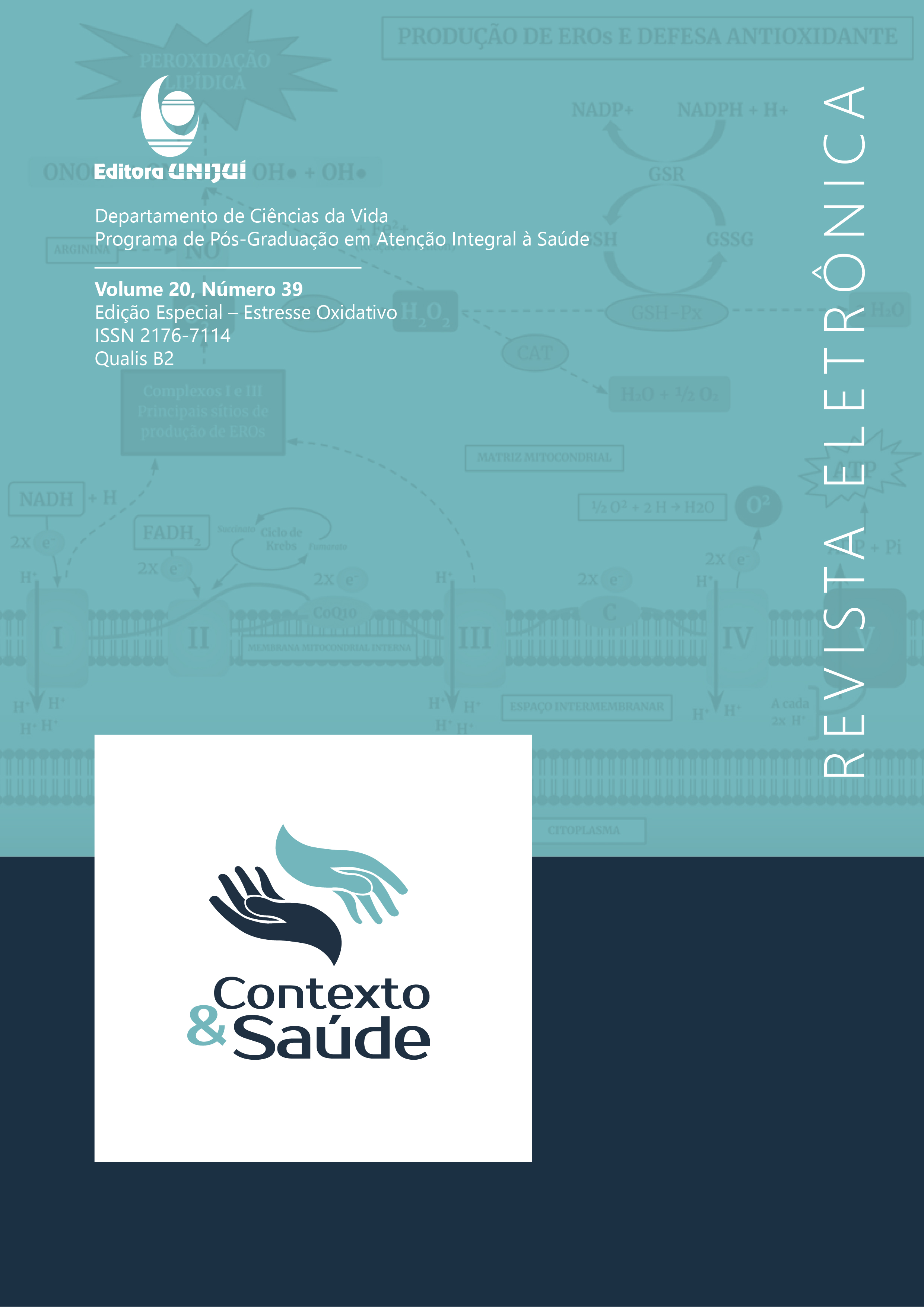EFFECTS OF TYPE 2 DIABETES MELLITUS INDUCTION AND OF MODERATE PHYSICAL EXERCISE ON THE HEPATIC METABOLISM AND OXIDATIVE STRESS IN WISTAR RATS
DOI:
https://doi.org/10.21527/2176-7114.2020.39.55-61Keywords:
Insulin resistance; blood glucose; high fat diet; amino acid metabolism.Abstract
AIMS: The aim of the study was to verify if the induction of Type 2 Diabetes Mellitus (T2DM) by the association of streptozotocin and high fat diet causes hepatic alterations and if physical exercise can improve these alterations. METHODS: Forty-six Wistar rats were divided into two groups. One group received a diet containing 60% of fat for 9 weeks and on the 14th day they were injected with a single dose of streptozotocin (25mg/kg). The other group, named control group, received a standard diet and a single dose of citrate buffer was given. Animals were them divided into two subgroups: one sedentary (S) and the other submitted to physical exercise (PE), totalizing four groups: C-S; C-PE; HF-S; HF-PE. After euthanasia blood and liver were collected. Plasma and hepatic concentrations of triacylglycerol and very low density lipoprotein; enzyme alanine transaminase, aspartate transaminase and arginase; urea, lactate and 8-isoprostane (an oxidative stress marker) were dosed. RESULTS: Capillary glucose was significantly higher in HF-S and HF-PE group animals compared to C-S and C-PE groups. There were no significant differences in alanine transaminase, arginase, oxidative stress and lactate concentration among the groups. Plasma urea concentration and hepatic aspartate transaminase concentration was lower in HF-S and HF-PE than in C-PE. Concerning liver triacylglycerol and very low density lipoproteins, both were higher in the HF-PE group when compared to the C-S. CONCLUSIONS: We conclude that diet was decisive for the aforementioned parameters alterations and that physical exercise protocol was not efficient to improve analyzed parameters.
Downloads
Published
How to Cite
Issue
Section
License
By publishing in Revista Contexto & Saúde, authors agree to the following terms:
The works are licensed under the Creative Commons Atribuição 4.0 Internacional (CC BY 4.0) license, which allows:
Share — to copy and redistribute the material in any medium or format;
Adapt — to remix, transform, and build upon the material for any purpose, including commercial.
These permissions are irrevocable, provided that the following terms are respected:
Attribution — authors must be properly credited, with a link to the license and indication of any changes made.
No additional restrictions — no legal or technological measures may be applied that restrict the use permitted by the license.
Notes:
The license does not apply to elements in the public domain or covered by legal exceptions.
The license does not grant all rights necessary for specific uses (e.g., image rights, privacy, or moral rights).
The journal is not responsible for opinions expressed in the articles, which are the sole responsibility of the authors. The Editor, with the support of the Editorial Board, reserves the right to suggest or request modifications when necessary.
Only original scientific articles presenting research results of interest that have not been published or simultaneously submitted to another journal with the same objective will be accepted.
Mentions of trademarks or specific products are intended solely for identification purposes, without any promotional association by the authors or the journal.
License Agreement (for articles published from September 2025): Authors retain copyright over their article and grant Revista Contexto & Saúde the right of first publication.

